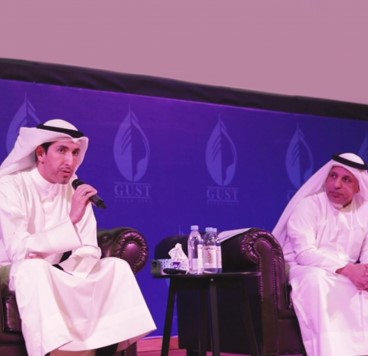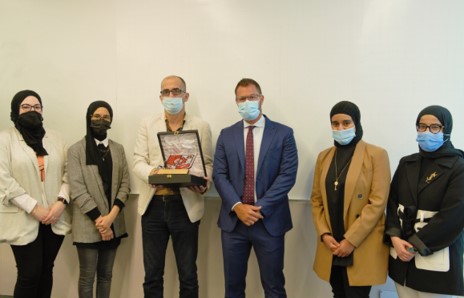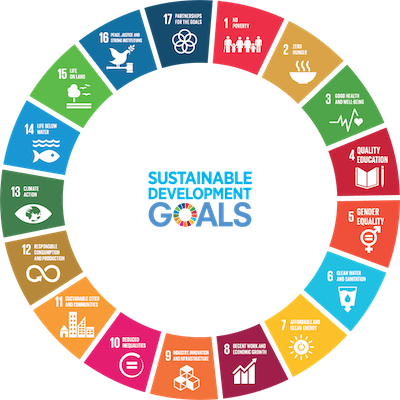SDG13: Climate Action

SDG 13 intends to take urgent action in order to combat climate change and its impacts. The contributing countries to this SDG are making plans to prioritize food security and production, terrestrial and wetland ecosystems, freshwater resources, human health, and key economic sectors and services.
The year 2019 was the second warmest on record. Carbon dioxide (CO2) levels and other greenhouse gases also rose to new records in 2019. It was at the end of the warmest decade, 2010 to 2019.
The UN discussions and negotiations identified the links between the post-2015 SDG process and the Financing for Development process that concluded in Addis Ababa in July 2015 and the COP 21 Climate Change conference in Paris in December 2015.
The Paris Agreement, adopted in 2015, aims to strengthen the global response to the threat of climate change by keeping a global temperature rise this century well below 2 degrees Celsius above pre-industrial levels. The Agreement aims to strengthen the ability of countries to deal with the impacts of climate change, through appropriate financial flows, a new technology framework and an enhanced capacity building framework. It also provides a path for the more developed countries to help out the undeveloped countries by adapting to the changes with trying to help fight against climate change. The main goal of the Agreement is to eventually become a net-zero emissions world; however, the implementation of the Sustainable Development Goals is crucial for the Paris Agreement to be of any effect.
In 2018, the Intergovernmental Panel on Climate Change (IPCC), the United Nations body for assessing the science related to climate change, published a special report "Global Warming of 1.5 °C". It outlined the impacts of a 1.5 °C global temperature rise above pre-industrial levels and related global greenhouse gas emission pathways, and highlighted the possibility of avoiding a number of such impacts by limiting global warming to 1.5 °C compared to 2 °C, or more. The report mentioned that this would require global net human-caused emissions of carbon dioxide (CO2) to fall by about 45% from 2010 levels by 2030, reaching "net zero" around 2050, through "rapid and far-reaching" transitions in land, energy, industry, buildings, transport, and cities.
GUST is committed to implementing climate-friendly land use, conservation and agriculture policies. The goal of the 30X30 Forest, Food and Land Challenge is to achieve 30% of climate solutions by 2030 through better agricultural and land use practices.
SEED Hosts First Seminar "Are we heading toward changes in water and electricity prices in Kuwait"

The Center for Sustainable Energy and Economic Development (SEED) at Gulf University for Science and Technology (GUST) hosted its first seminar of the 2021/22 academic year titled "Are we heading toward changes in water and electricity prices in Kuwait?". The two key speakers of the seminar were Instructor of Economics and Finance, Dr. Osama Al-Falah and Senior Analyst at Al-Khafji Joint Operations, Mr. Mohammad Ramadhan, who tackled a various questions regarding Kuwait's economic future with water and electricity.
Both speakers tackled topics such as why should Kuwait increase its water and electricity prices and how does it compare geographically in the region? This seminar was organized in coordination with the Economics Club, as a part of their "Sustainability Week" shedding light on energy and sustainability.
GUST Students Praised for taking Silver Award for Green Visioners
Associate Professor of Business Administration at GUST, Dr. Michel Zaitouni and the Dean of the College of Business Administration, Dr. Jean-Paul Arnaout, awarded four students who placed second in "The Universities Entrepreneurship Competition", organized by the Ministry of Youth Affairs, with an award ceremony which took place on GUSTs campus.

This marked the first edition of "Universities Entrepreneurship Competition", which was held on MS teams in March. Teams that participated were asked to provide innovative sustainable solutions to modern day challenges, and were judged for their innovation, financial sustainability, expansion, and social impact. Other universities that participated included Kuwait University, The American University of the Middle East, The Australian College of Kuwait, The Arab Open University, Kuwait Technical College, and The Public Authority for Applied Education and Training.
The four students from GUST were Zahraa Aljuraidan, Zeinab Talal Baydoun, Sarah Alkhabbaz, and Sarah AlSemael competing under the team's name, "The Green Visioners", and were led by Associate Professor of Business Administration, Dr. Michel Zaitouni. Their proposal is to grant every individual with the ability to grow their own food in the simplest way possible while contributing to help the environment by adopting a complete sustainable & eco-friendly approach. Their project, titled El Jardín, which means "the garden" in Spanish, provides consumers with a simple, fun, and organic gardening experience in their own homes. Whether they are beginners or have a general knowledge about gardening, consumers of all experiences can enjoy this practice. It aims to tackle different environmental issues by granting the consumer the ability to grow their own fresh food and further simplifying the process with a tutorial embedded in a QR code, with optional SMS updates.
The Green Visioners were celebrated and commended for their success in an award ceremony, with each member presented with a "certificate of achievement" by the Dean himself, while Dr. Michel Zaitouni presented the second-place trophy to the Dean of the College of Business Administration.
Dean of the College of Business Administration, Dr. Jean-Paul Arnaout, said, "This is a great achievement for GUST and for the students involved. As a first edition to the competition, it is impressive the team showed up so well prepared in such a short period of time. I am proud to call them students of the College of Business Administration but more importantly students of GUST. I hope we can go back again next year and achieve the same success."
The achievement of the "The Green Visioners" in the "The Universities Entrepreneurship Competition" is a testament to the outstanding quality and dedication of the students from the College of Business Administration. Recently another group of students also achieved second place in the local CFA challenge in Kuwait, showcasing great academic mastery as young students.
GUST for SDGs specific researches on sustainability
- Davis, Lloyd S., et al. "Transformation of the media landscape: Infotainment versus expository narrations for communicating science in online videos." Public Understanding of Science 29.7 (2020): 688-701
- León, Bienvenido, et al. "Strategies for climate change communication through social media: Objectives, approach, and interaction." Media International Australia (2021): 1329878X211038004
- Davis, Lloyd S., et al. "Infotainment May Increase Engagement with Science but It Can Decrease Perceptions of Seriousness." Sustainability 14.17 (2022): 10659
- Peter, Stephan, et al. "Performance Analysis of a Solar-Powered Multi-Purpose Supply Container." Sustainability 14.9 (2022): 5525
Education for SDGs specific courses on sustainability
Have dedicated courses (full degrees, or electives) that address sustainability and the SDGs.Courses Related To SDGs
CAS = Collage of Arts and Sciences, CBA = Collage of Business Administration
| SDG | Collage | Course |
|---|---|---|
| SDG 13 - Climate Action | CAS | POLI 190 Universal Human Rights: Ideals & Realities 3.00 Prerequisite: GEPT / TOEFL Score / ENGL 110 Aims to defend the position that human rights are universal rights by unpacking the concept of universal human rights: it is historical beginnings, its possible religious and cultural influences and conflicts, and the ongoing contentions that surround it. Addresses ongoing local, regional, and global rights issues and violations and discusses the transformative power of education for human rights. This course equips students with the knowledge, skills, and values necessary to contribute to the worldwide human rights dialogue. |

 Main Page
Main Page Download PDF
Download PDF